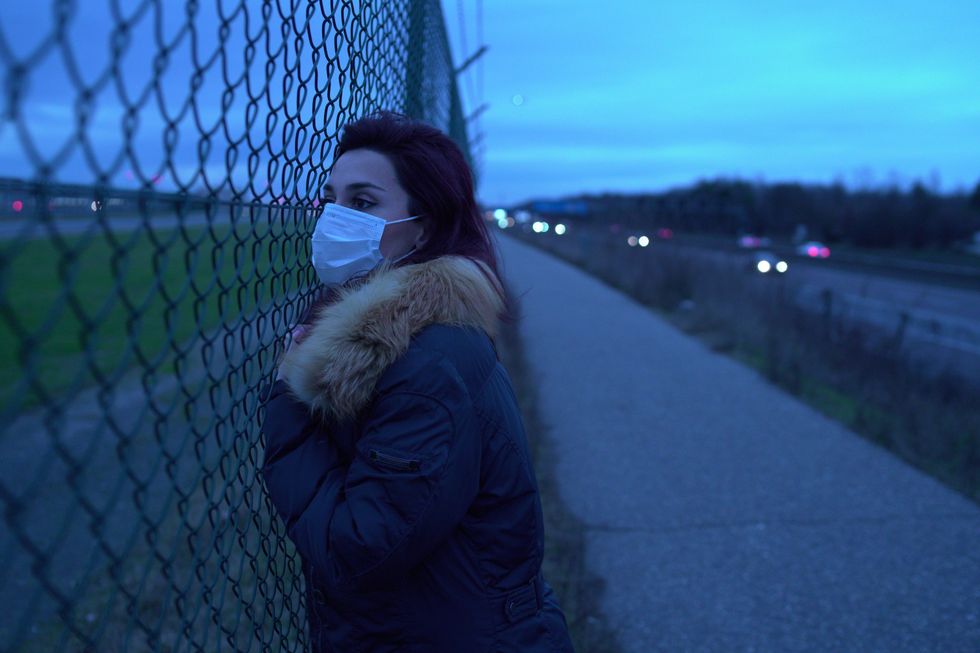It's hard not to feel worried when there's so much happening in the news. Every so often, you may get a notification on your phone about breaking reports or see headlines on your social media feeds. Sometimes, you're able to push the nerves away, but it's much harder with the focus on a new virus.
The recent coronavirus outbreak, also known as COVID-19, has taken over news cycles for the last few weeks. Every day, more people come down with the illness, and some die. How can you know if you're safe when everyone seems to be panicking?
The truth is that only people in certain areas, like China, should be concerned. Discover eight reasons not to worry too much about the coronavirus so that you can get back to focusing on what's happening in your life.
1. Officials Are on Alert

If a new virus were to spread in a remote location, it would do great damage before someone could do something. The coronavirus 2020 outbreak began in one of the most populated areas of the globe and immediately caught the attention of world health specialists.
Because of their quick action, word began to spread to warn people. Health officials have focused on treating and curing the virus ever since, which means the best people who can help are already on the case.
2. Packages Are Safe

China makes and ships countless products around the globe every day, which has made people worried they can catch the coronavirus by placing online orders. Back in January, Nancy Messonnier, the director at the Center for Disease Control's Center for Immunization and Respiratory Diseases, made a public announcement about this.
She said the virus could not travel on imported products because the temperatures aren't ideal for growth. Even if you get the fastest two- to three-day shipping, the virus would still die before it gets to your home.
3. It Isn't a Big Threat

People in China should take every precaution to protect themselves from the coronavirus outbreak, but Americans can relax a little. As long as you haven't traveled back from China in the last month or two, the flu should be your primary concern.
Between October of last year and this February, the flu has infected around 41 million people and killed at least 16,000. Flu season still has some time to go, so wash your hands and get this year's flu vaccination if you haven't already.
4. Contagious Americans Are Contained

When you're worried about an outbreak, you have to look at the numbers. Only 26 Americans have experienced symptoms, while thousands have come down with the virus overseas. Those 26 patients are well taken care of at military bases with the best doctors.
Compared to the millions of people sick from the flu, you aren't likely to get the coronavirus due to the containment of infected individuals.
5. News Outlets Published an Incorrect Map

Just after the world started talking about the coronavirus, news outlets published a map that supposedly showed the future of the outbreak. It was crisscrossed with red lines leading to every country, saying no one was safe from the deadly path of destruction.
The map originated from the World Population Project at the University of Southampton. It tracked where people from Wuhan, the city the virus originated in, traveled for two weeks leading up to the city's lockdown. It wasn't a projection of the outbreak at all, but the loaded language in the story still caused people to panic.
6. Fatality Rates Are Dropping

At the beginning of the coronavirus outbreak, fatalities began to climb daily. Officials published numbers so that the public had a better idea of how bad the situation could get.
Recently, the fatality rates dropped slowly in affected areas where they were higher before. Though this doesn't mean the outbreak is over, it does indicate that the virus may slow down and give officials more time to find a cure.
7. Most Patients Have Mild Symptoms

When you imagine someone coming down with the coronavirus, what do you picture? If you're thinking of something like a zombie apocalypse, you're quite mistaken.
The majority of the people who have come down with the virus experienced mild respiratory issues that caused them to go to the doctor. In only a few cases did those symptoms worsen. Congestion is something everyone has dealt with at some point, which is why it could have spread unknowingly at first.
8. Nobody's Sounded Any Alarms

If you want to know when you should start to panic, always look to the people in charge. The Secretary of the U.S. Department of Health and Human Services, Alex Azar, recently spoke to news outlets and said, "This is potentially a very serious public health threat, but at this time Americans should not worry about their safety."
If there should ever be a need for staying home or raiding the grocery store for bread and milk, the CDC or DHHS will make an announcement and suggest appropriate precautions.
Stay Aware and Alert in Wake of the Coronavirus
You can go back to your daily routine and relax knowing that the virus will likely never affect you or your loved ones. At the same time, stay alert by watching for occasional news updates on the progress of the outbreak. It's good to know what's going on in the world, but don't let it ruin your peace of mind.
- A Coronavirus Conversation ›
- Everything You Need To Know About The Coronavirus ›
- The Coronavirus Isn't An Excuse For Anti-Asian Racism ›
- Jokes About Catching Coronavirus Aren't Funny, They're Racist ›














